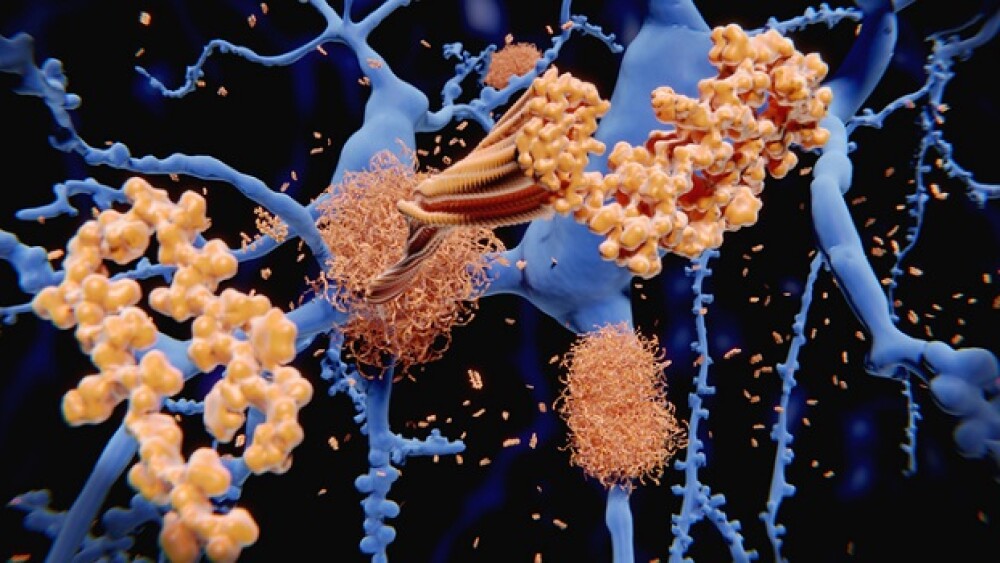After winning traditional approval from the U.S. regulator, Eisai’s Alzheimer’s disease therapy Leqembi has seen a sharp increase in patient uptake, with a target of 10,000 patients by March 2024.
Pictured: Illustration of amyloid plaques disrupting neurons/iStock, selvanegra
In its second-quarter earnings report for fiscal year 2023, Eisai touted a sharp increase in the number of patients being treated with its Alzheimer’s disease therapy Leqembi (lecanemab).
Leqembi is an anti-amyloid antibody that won accelerated approval in January 2023. It works by binding to the pathologic amyloid aggregates in the brain and tags them for clearance. Following evidence of clinical benefit from the confirmatory Phase III Clarity-AD trial, the FDA converted Leqembi’s authorization into full approval in July 2023.
Traditional approval meant that the Centers for Medicare and Medicaid Services would offer coverage for Leqembi, making the therapy more accessible for a broader population of patients.
“Compared to the level at the time of accelerated approval, the number of patients treated is increasing dramatically,” Eisai CEO Haruo Naito said in an investor call Monday morning, adding that as of Oct. 27, around 800 Alzheimer’s disease (AD) patients had received Leqembi in the U.S.
Between April and September 2023, Leqembi earned Eisai approximately $2.7 million in sales. This was a modest contributor to the company’s approximately $2.4 billion earnings in the same period. “I understand that there are some voices of disappointment in the market,” Naito said, adding that this may reflect in the company’s share price.
However, he reiterated that this is within the company’s expectations. “Please do not see this as a negative surprise,” Naito said. In terms of weekly average revenue, Leqembi is 11 times higher than it was before earning full FDA approval.
Eisai contends it is prepared for Leqembi’s further expansion. From June to October 2023, the number of specialists ready to diagnose, treat and monitor AD patients grew from approximately 1,400 to 2,500. In addition, Leqembi has now been approved by 60% of the top 100 Integrated Delivery Networks in the U.S.
The company’s target is to reach around 10,000 patients by March 2024 with revenue of $66 million.
To aid in the expansion, Eisai is developing a subcutaneous formulation of Leqembi. Last month, at the 2023 Clinical Trials on Alzheimer’s Disease (CTAD) conference, the company posted data from the open-label extension phase of Clarity-AD, demonstrating that a weekly subcutaneous injection of Leqembi had a better pharmacokinetic profile and a slightly higher amyloid clearance rate than biweekly intravenous infusions.
Nevertheless, the subcutaneous injection still came with safety issues called amyloid-related imaging abnormalities, indicative of bleeding and swelling in the brain.
Tristan Manalac is an independent science writer based in Metro Manila, Philippines. He can be reached at tristan@tristanmanalac.com or tristan.manalac@biospace.com.






